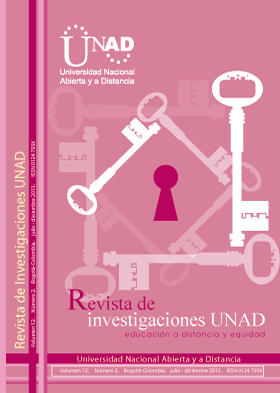Cuando la REVISTA DE INVESTIGACIONES UNAD recibe la postulación de un original por parte de su autor, ya sea a través de correo electrónico o postal, considera que puede publicarse en formatos físicos y/o electrónicos y facilitar su inclusión en bases de datos, hemerotecas y demás sistemas y procesos de indexación. REVISTA DE INVESTIGACIONES UNAD autoriza la reproducción y citación del material de la revista, siempre y cuando se indique de manera explícita el nombre de la revista, los autores, el título del artículo, volumen, número y páginas. Las ideas y conceptos expresados en los artículos son responsabilidad de los autores y en ningún caso reflejan las políticas institucionales de la UNAD
Using cooperative robots to develop cooperative working skills in children
This paper describes a contribution to QUEMES project. This is
a proposal for education in technology approaching three parts:
mobile differential robots construction, event oriented graphic
programming environment and educational activities for children.
This project was developed by Pontificia Universidad Javeriana
Sidre research group in 2010, in agreement with Maloka. QUEMES
is a technology education learning proposal using cooperative robots. The main goal is that the children learn to work in a cooperative way through observation of robot interaction to resolve a problem. “Motivation for the creation” was the applied methodology developed by Maloka. The problems to resolve were every day-life situations facilitating the association between technology and daily life. The software uses for programming the robots was developed in a highly intuitive and easy-to-use graphic environment. The students define the interactions and reactions between robots to the events. When compiling the programs the code for the robot standalone control system was generated automatically.
QUEMES aside from providing a hardware and software platform,
propose a number of technological school activities where the
students learn mechanics electronics and basic principles of
computer programing, required for understanding of how robots
work besides of think over cooperative work. The main contribution presented is the extension of educational activities that the students can do through the design of new cooperation tasks within robots, using the simple geometric objects prehensile system.




